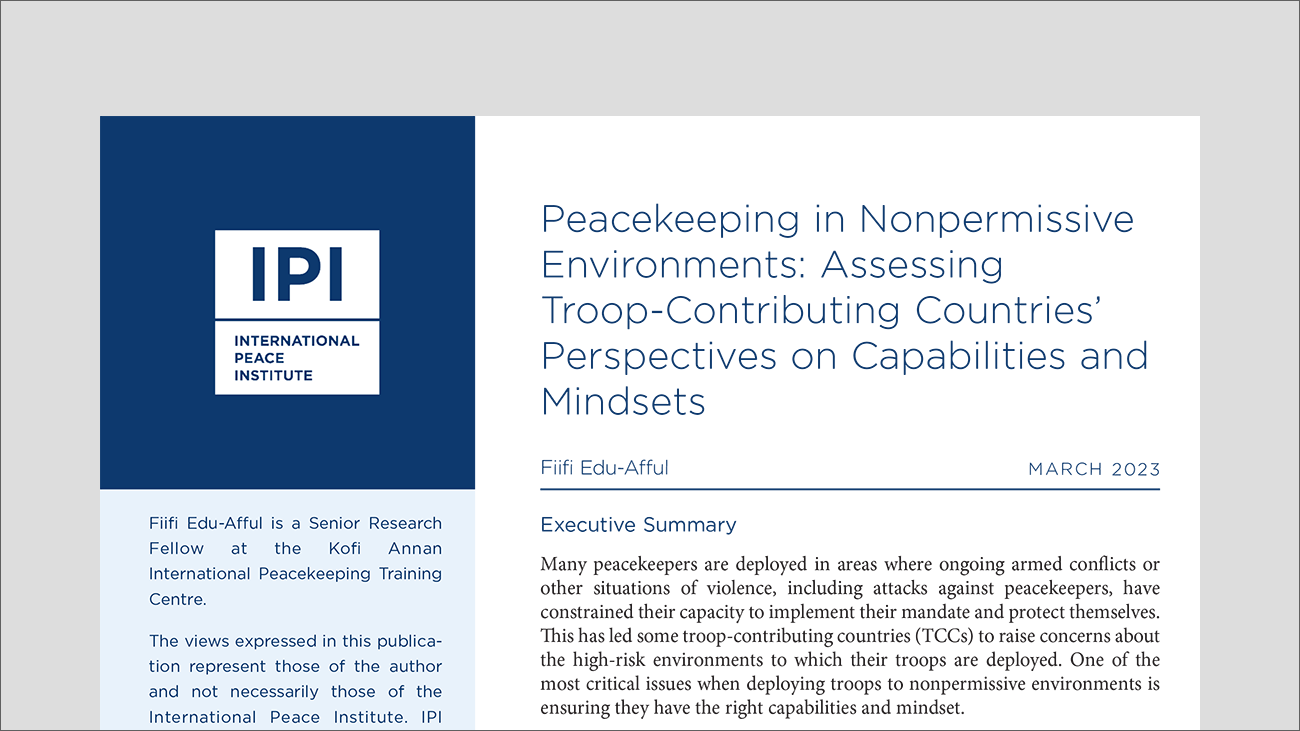
Many peacekeepers are deployed in areas where ongoing armed conflicts or other situations of violence, including attacks against peacekeepers, have constrained their capacity to implement their mandate and protect themselves. This has led some troop-contributing countries (TCCs) to raise concerns about the high-risk environments to which their troops are deployed. One of the most critical issues when deploying troops to nonpermissive environments is ensuring they have the right capabilities and mindset.
This paper interrogates TCCs’ perspectives on capabilities and mindsets and explores their implications for peacekeeping policy and practice. The goal is not only to deepen understanding of the UN’s progress on implementing the A4P+ priorities but, more importantly, to assess the state of play of peacekeeping in nonpermissive environments, drawing on the diverse perspectives of TCCs.
The paper concludes by considering how capabilities and mindsets relate to accountability for and accountability of peacekeepers. Failure to properly train, equip, and support troops being deployed to nonpermissive environments raises questions about whether the UN and TCCs are accountable to peacekeepers. Likewise, it is unclear to what extent peacekeepers should be held accountable for their performance when they have not been provided the proper equipment, training, and mindset.







